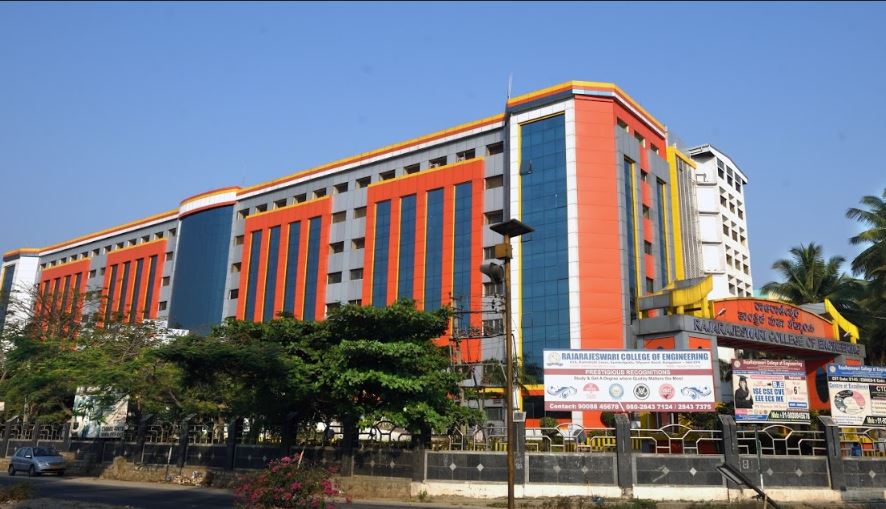Will A Ph.D. After Post Graduation Boost My Engineering Career?
Pursuing a Ph.D. after completing a postgraduate degree in engineering can significantly boost your career, but it largely depends on your career goals. A Ph.D. opens doors to specialised, high-level positions in academia, research, and leadership roles in industry. It allows you to become an expert in a specific area of engineering and can lead to groundbreaking research opportunities. However, if your career goals are more aligned with practical, hands-on engineering work, a Ph.D. may not be necessary and could even be seen as overqualification. It’s essential to carefully consider your aspirations and the specific demands of your desired career path before embarking on a Ph.D. journey, as it requires a substantial commitment of time and effort. Let’s explore the topic and understand how it can be beneficial.
What Are The Different Areas Of Ph.D. In Engineering
Ph.D. programs in engineering offer a wide range of specialisations, allowing students to focus on specific areas of engineering that align with their interests and career goals. The specific areas of Ph.D. research in engineering can vary by university and country, but common areas include:
Ph.D. – Civil Engineering
A Ph.D. in Civil Engineering is the highest academic degree in the field, typically requiring several years of rigorous research and coursework. It equips individuals with advanced expertise in various aspects of civil engineering, such as structural design, transportation systems, environmental engineering, and construction management. Doctoral candidates conduct in-depth research, often contributing to the field’s knowledge through dissertations. They develop problem-solving skills, critical thinking, and the ability to innovate in the construction and infrastructure sectors. Graduates with a Ph.D. in Civil Engineering often pursue careers in academia, research, or take on leadership roles in government agencies, consulting firms, or the private sector.
- Career options: After a Ph. D., you can become a university professor, or a leading researcher in construction materials, environmental engineering, structural analysis, or land development. You may also work in high-level positions in civil engineering consulting firms, government agencies, or construction companies.
Ph.D. – Computer Science & Engineering
A Ph.D. in Computer Science and Engineering is the pinnacle of academic achievement in this dynamic field. It typically entails several years of intensive research, coursework, and innovation. Doctoral candidates delve into cutting-edge topics, such as artificial intelligence, machine learning, cybersecurity, and software engineering. They are tasked with advancing the field’s knowledge through a dissertation that contributes to technology’s evolution. This program fosters critical thinking, problem-solving skills, and the ability to create novel solutions to complex computing challenges. Graduates often pursue careers in academia, research, or leadership positions in the tech industry, playing a vital role in shaping the future of technology.
- Career options: After a Ph.D. the career list includes becoming a professor, a principal investigator in research labs, or a senior software engineer in top technology companies. Ph.D. holders in computer science and engineering contribute to cutting-edge research and development in areas like artificial intelligence, machine learning, and cybersecurity.
Ph.D. – Mechanical Engineering
A Ph.D. in Mechanical Engineering represents the highest level of academic achievement in this discipline. It involves years of advanced research, coursework, and innovation in areas like thermodynamics, materials science, robotics, and fluid dynamics. Doctoral candidates undertake in-depth research, often contributing to the field’s knowledge through a dissertation. This program fosters critical thinking, problem-solving, and the ability to design and optimise complex mechanical systems. Graduates typically pursue careers in academia, research, or leadership roles within industries such as automotive, aerospace, and manufacturing, where they play a pivotal role in developing new technologies, improving existing systems, and pushing the boundaries of mechanical engineering.
- Career options: A Ph.D. opens doors to careers in academia, where you can teach and conduct research. Additionally, you can work as a research and development engineer in industries such as automotive, aerospace, or manufacturing, focusing on product innovation and design.
Ph.D. – Electronics and Communication Engineering
A Ph.D. in Electronics and Communication Engineering represents the highest level of expertise in this field. It involves several years of intensive research, coursework, and innovation in areas like digital signal processing, wireless communication, microelectronics, and telecommunications. Doctoral candidates undertake in-depth research projects, often culminating in a dissertation that advances the knowledge and technology in the field. This program fosters critical thinking, problem-solving skills, and the ability to design and optimise complex electronic and communication systems. Graduates typically pursue careers in academia, and research, or assume influential roles in industries like telecommunications, semiconductor, and networking, contributing to the development of cutting-edge technologies and communication solutions.
- Career options:D. graduates often pursue careers as researchers in communication systems, wireless technology, and signal processing, or become experts in designing and optimising electronic and communication systems. They can also work in academia or high-level positions in the telecommunications industry.
Ph.D. – Electrical and Electronics Engineering
A Ph.D. in Electrical and Electronics Engineering is the highest academic achievement in this field, encompassing extensive research, advanced coursework, and innovation in areas like power systems, control systems, electronic devices, and renewable energy. Doctoral candidates engage in in-depth research, often producing a dissertation that contributes to the field’s knowledge and technology. This program fosters critical thinking, problem-solving, and the ability to design and optimise intricate electrical and electronic systems. Graduates often embark on careers in academia, research, or leadership roles in industries such as energy, electronics, and automation, playing a pivotal role in advancing technology, sustainable energy solutions, and electrical system development.
- Career options: With a Ph.D., you can become a university professor, a research scientist, or a technical leader in industries like electronics manufacturing, power systems, telecommunications, and semiconductor technology.
Ph.D. Program And Its Essence In Engineering Field
A Ph.D. program in the field of engineering is an advanced and prestigious academic pursuit that carries significant importance in shaping the future of technology and innovation. Its essence lies in its comprehensive approach to fostering expertise, driving research, and advancing the boundaries of engineering knowledge and practice.
The primary essence of a Ph.D. program in engineering is research. Doctoral candidates engage in extensive, original research that contributes to the field’s existing knowledge base. This research is not limited to theoretical concepts but often extends into practical applications, where new technologies, methodologies, or engineering solutions are developed. The research conducted during a Ph.D. program has the potential to address critical global challenges, improve existing systems, and innovate for the future.
Moreover, a Ph.D. program equips individuals with advanced problem-solving skills, critical thinking, and the ability to approach complex engineering issues with a systematic and innovative mindset. It encourages students to question assumptions, experiment with novel ideas, and find creative solutions to intricate problems, which are vital skills in the engineering profession.
In addition, the essence of a Ph.D. program lies in its role in producing thought leaders and experts in various engineering subfields. These experts often become the driving force behind technological advancements, pushing the boundaries of what is possible in areas such as civil engineering, mechanical engineering, electrical engineering, and more.
Furthermore, a Ph.D. in engineering is a gateway to careers in academia, where graduates can educate and inspire the next generation of engineers. They can also shape engineering policy, contribute to the development of engineering standards, and lead in regulatory roles, ensuring that engineering practices are safe, sustainable, and compliant with industry requirements.
Overall, a Ph.D. program in engineering embodies the pursuit of knowledge, the advancement of technology, and the cultivation of leaders who will shape the future of the engineering field. It is not only a personal achievement but also a significant contribution to society by fostering innovation, solving complex problems, and pushing the boundaries of engineering excellence. If you have completed your post-graduation degree and wish to pursue Ph.D. program you can visit us at RajaRajeswari College of Engineering and select your research program and specialisation.



